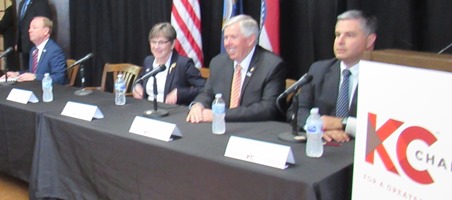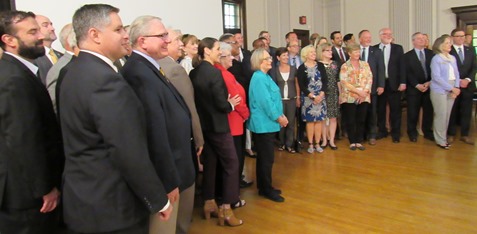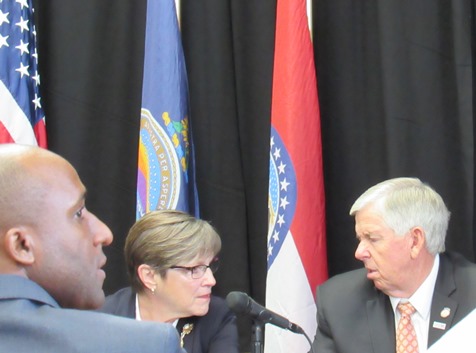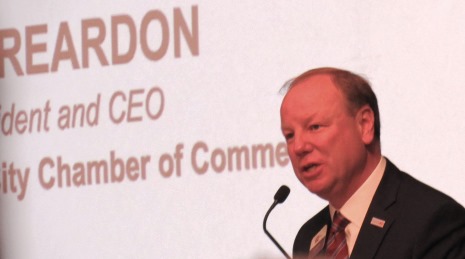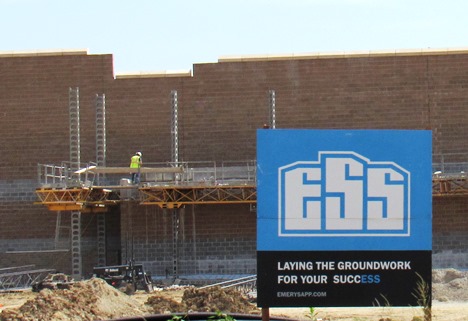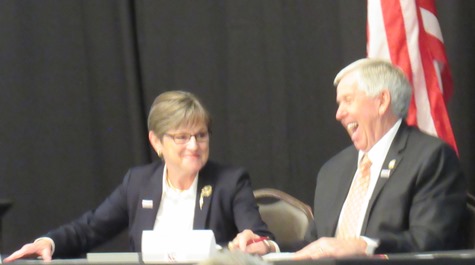
by Mary Rupert
From now on, Missouri and Kansas will work together on economic development instead of trying to lure businesses across the state line.
The governors of Kansas and Missouri announced today at a summit held at Memorial Hall in Kansas City, Kansas, that they would end the economic “border war” in the Kansas City region and quit offering incentives and tax breaks to companies that move across the state line.
Kansas Gov. Laura Kelly made ending the border war one of her campaign issues. It also was a goal of the Greater Kansas City Chamber of Commerce, led by Joe Reardon, the GKC chamber’s president.
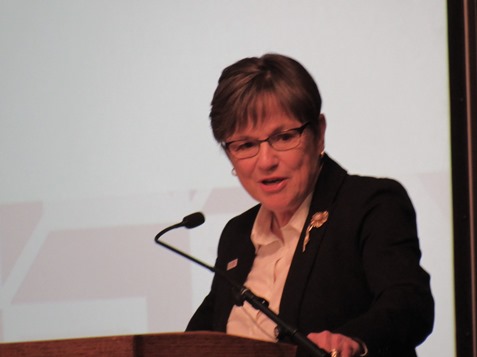
“The executive order I recently signed, and the bill that Governor Parson signed, ends this senseless battle,” Gov. Kelly said.
“Kansans elected me in part because they were tired of far-reaching fiscal irresponsibility in the past several years, which included inaction on the border war, one that saw hundreds of millions of dollars spent in incentives by both states in the past decade to move businesses a matter of blocks, with no economic gain to the region as a whole,” Gov. Kelly said.
The goal of the agreement will be more new jobs in the area, she said.
Gov. Kelly said they will continue to compete for businesses that want to start up or relocate, and they will use strategies that are sensible, cost effective and productive for people in both states.
“The best outcome will be substantial growth in this region. Growth where all businesses can prosper and where both states benefit from their presence. Boundaries will no longer define the potential for progress,” Gov. Kelly said.
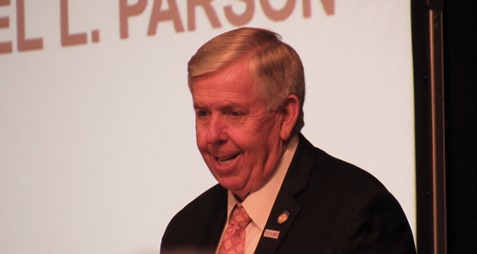
“Sometimes common sense does prevail,” Missouri Gov. Mike Parson said.
“We talk about bringing new businesses in, it’s also just as important to retain the businesses we have,” Gov. Parson said.
Gov. Parson said the governments could use the money they save from incentives for companies that move across the state line for improvements such as repairing the Buck O’Neil Bridge.
He also said officials in Washington, D.C., might learn something from this agreement signed by the governor of Kansas, a Democrat, and the governor of Missouri, a Republican.
According to the agreement, the states can still give incentives for projects that add net new jobs. The “net new jobs” could receive incentives from the states, and the agreement says states will share information with each other about the number of base jobs of the company that is relocating.
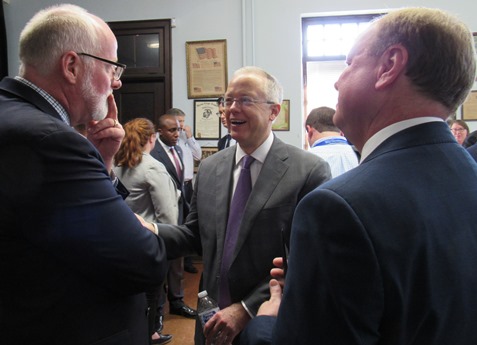
Kansas City, Kansas, Mayor David Alvey said he’s on board with the idea to end the border war.
Kansas City, Kansas, will work together with Kansas City, Missouri, and other cities not to use incentives for firms moving from one side of the state line to the other, he said.
The fundamental question for the city is how do they improve services, provide more services and reduce the tax burden, Alvey said.
“The only way to do that is by growing the economy,” Alvey said.
Sales tax revenue bonds (S.T.A.R. bonds), have been very productive for Wyandotte County, he said. Property tax revenues and sales tax revenues have increased in the areas with S.T.A.R. bonds, he said.
Most companies look at the work force and the communities’ amenities when they are thinking of relocating, and taxes are way down the line in the criteria they are looking at, he said.
The summit also included presentations by Amy Liu, Brookings Institute; David Toland, Kansas secretary of commerce; Rob Dixon, director of the Missouri Department of Economic Development; and Don Hall, executive chairman of Hallmark Cards.
